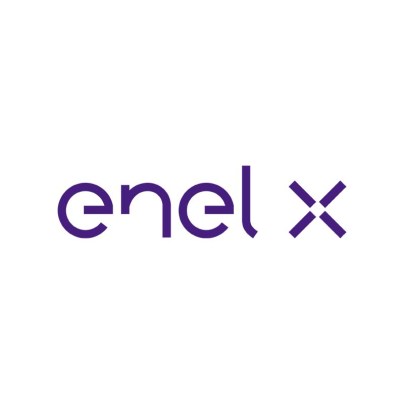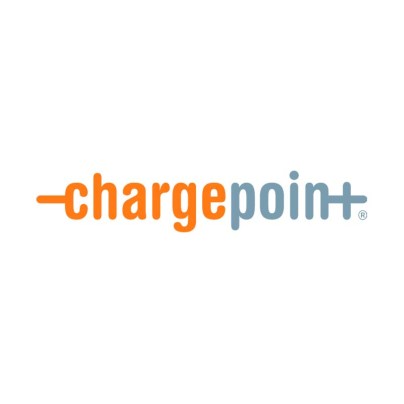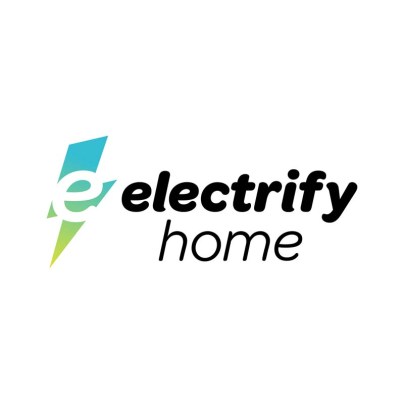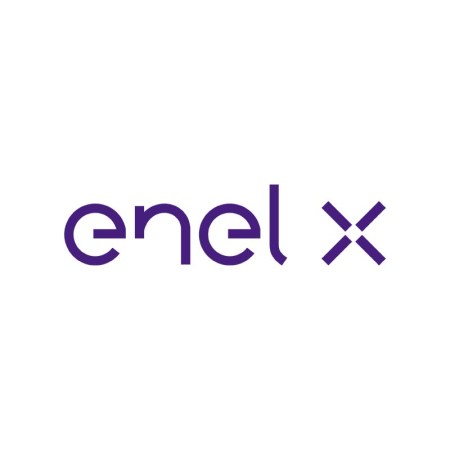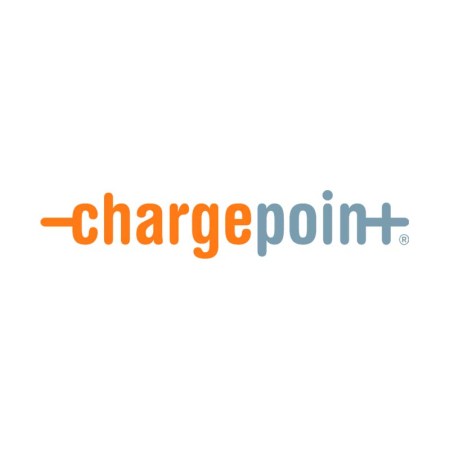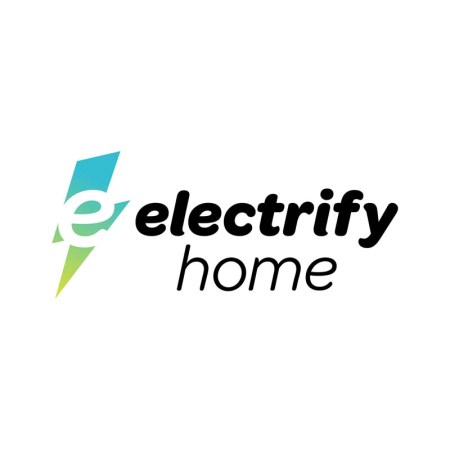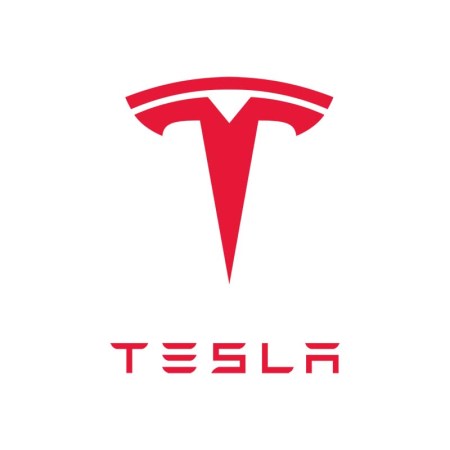We may earn revenue from the products available on this page and participate in affiliate programs. Learn More ›
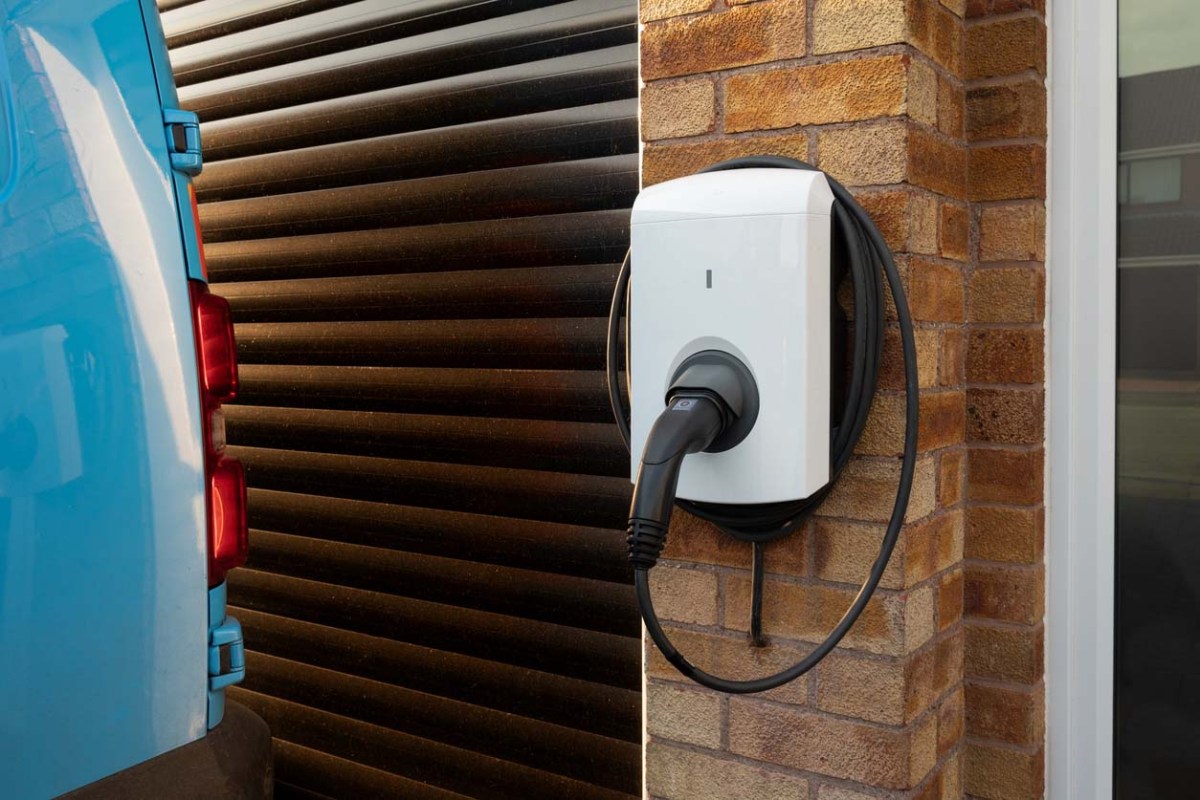
As people are growing tired of rising gas costs and the negative impact of fossil fuels, electric vehicles have started to take up more space in the automotive market. However, with the increase in popularity of electric vehicles, it can be more difficult to find an available charging station at a nearby mall or business. And while it’s possible to charge EVs through a traditional AC outlet, it can take hours for the battery to fill up.
Hiring one of the best electric vehicle charging companies to install an electric vehicle charger at home is a safe, convenient way to ensure a vehicle is always ready to go when it’s needed. Current or prospective EV owners can use this guide to learn more about EV charging stations, installation, cost, and benefits of installing an electric vehicle charger in order to find the best EV charger installers.
- BEST OVERALL: Enel X
- RUNNER-UP: ChargePoint
- MOST VERSATILE: Electrify Home
- BEST FOR TESLAS: Tesla
- ALSO CONSIDER: Lectron
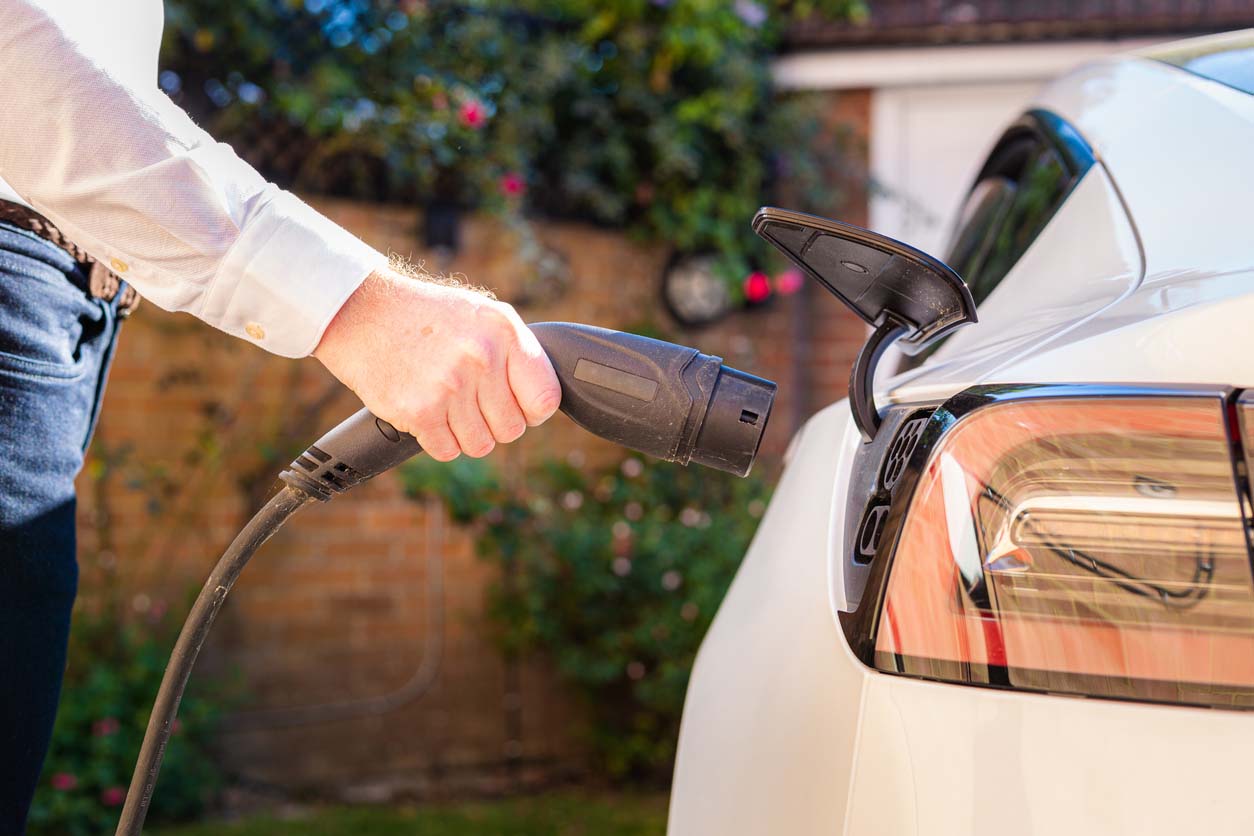
What to Consider When Choosing One of the Best Electric Vehicle Charging Companies
Before deciding on a top electric vehicle charging company, it’s recommended to research the company and the products it offers to find out more about the selection, accessibility, smart- device integrations, and warranty period to make an informed decision.
Charger Level
There are three types of electric vehicle chargers. It’s important to have a basic understanding of the differences between types before hiring an EV charger installer.
- Level 1 EV chargers are often included with an electric vehicle at the time of purchase. They are essentially charging cables that connect the vehicle to a standard 120V outlet. Level 1 chargers typically take 8 to 12 hours to fully charge a vehicle, so this type of charger is adequate for those who anticipate only needing to charge their cars overnight. An owner will also need a standard 120V outlet in the garage or somewhere close to where the vehicle is parked.
- Level 2 EV chargers are designed to charge the vehicle more than twice as fast as a Level 1 charger. However, this is only possible because Level 2 chargers must be connected to a 240V outlet. EV owners may already have this kind of outlet in their garages; these outlets can be three- or four-pronged depending on the home’s age. If the correct outlet is already in place in a location where it’s easy to connect the electric vehicle, an owner can purchase a Level 2 charger and plug it in. It’s also possible to hire an electrician to install a 240V outlet for a plug-in charger or hardwire a Level 2 charger.
- Level 3 EV chargers are not typically available for residential installation. These chargers are installed in commercial locations for paid or free use. Level 3 chargers are also known as DC fast chargers because they can typically charge an electric vehicle battery to 80 percent in about 30 minutes. However, these chargers can cost $20,000 for the unit and upwards of $50,000 to install, while Level 2 charger installations only cost between $400 to $1,700, with unit prices as low as a few hundred dollars.
Hardwire vs. Plug-In Installation
As noted above, EV chargers can come as hardwired models or as plug-in products that can be used with any compatible power outlet. The main benefit of a hardwired EV charger is that the owner doesn’t have to worry about the unit sitting loose or being accidentally pulled out of the outlet. Additionally, there are some locations where it is required for a Level 2 charging station to be hardwired for residential installation, so it’s recommended for owners to check their local regulations.
Plug-in EV chargers are easy to use: Drivers can plug the charger into a compatible power outlet and connect it to the vehicle to charge the battery. Level 1 EV chargers are essentially charging cables that connect to standard 120V outlets, but plug-in Level 2 chargers require a 240V outlet.
Product Variety
A key factor to consider when looking for one of the best electric vehicle charging companies is the variety of products. Some companies may choose to manufacture, market, maintain, and improve on a single charger product. Other companies take the opposite approach, choosing to offer customers a wide variety of products with different features so that they can pick and choose the right EV charger based on personal preferences. It’s wise for customers to consider multiple manufacturers and products to determine the right choice for their needs.
Product Accessibility
Another consideration to keep in mind is the product accessibility. Where can the customer buy the charger from? Lesser-known companies may only sell their products through personal websites or local brick-and-mortar stores, making the products difficult to find. Popular EV charger products tend to be available through well-known retailers such as The Home Depot, Walmart, Amazon, or Best Buy.
In general, the more accessible the product, the more likely an electrician or installer will have experience working with the technology, making it faster and easier to install. Accessibility also affects the maintenance of the EV charger because if replacement parts are not easy to source, then any necessary repairs can be costly to complete.
Smartphone and Smart-Home Integration
One of the most commonly overlooked benefits of a home EV charger is that many of these devices can now be connected to a smartphone or smart-home device. These integrations allow the user to quickly check the status of their vehicle. This innovative feature saves EV owners time and effort and prevents them having to walk to the charging station for an update. In many cases, the apps also have helpful information that can be used to quickly troubleshoot basic problems with the EV charger.
Warranty
An electric vehicle charging station is a significant investment that can cost over $1,000 to install, so before deciding on an EV charger installer, it’s a good idea to research potential companies and ask about product warranties. Not all companies will warranty their products, but the top electric vehicle charging companies will typically have a warranty period of about 1 to 3 years. Warranties are not uniform for every company or even for every product a single company sells, so it’s necessary to research the exact details of a warranty before purchasing an EV charger.
Customer Support
Companies that fail to communicate clearly with customers do not often succeed because when individuals are paying for a product or a service, they typically want to understand the benefits, costs, and procedures. A knowledgeable, experienced customer service department can provide clear details and answer any questions a customer may have, which helps build the customer’s confidence in the product or services.
After researching a pool of EV charger products and installers, prospective customers can narrow down the list to a few top choices. Helpful FAQ sections on company websites, troubleshooting guides, and superior customer support staff that can provide detailed answers with calm, professional courtesy are all solid signs a company is interested in providing quality products.
Our Top Picks
To find the best Level 2 EV charger manufacturers, we looked for companies with wide product accessibility, outstanding customer support, reasonable warranty periods, and smart-device integration. Here are the standouts.
Best Overall
Enel X
See It- Products: JuiceBox 40 14-50 Plug In, JuiceBox 40 Hardwire, JuiceBox 48, JuiceBox 32 Plug In, JuiceBox 32 Hardwire
- Retailers: Best Buy, Amazon, The Home Depot, Walmart, Enel X website
- Warranty: 3 years
- Customer support: Phone, email, live chat
Pros
- Comprehensive product lineup
- Products widely available for purchase through popular retailers
- Product compatibility with Alexa and Google voice assistants
- Flexible installation options
- Incentive programs for implementing eco-friendly practices
Cons
- Some reported app bugs
Why It Made the Cut: The flexible installation options and wide variety of available products make it easier for customers to find the right EV charger for their home and vehicle with Enel X. Enel X provides customers with a comprehensive product lineup consisting of a variety of plug-in and hardwired EV charging solutions. The products are available at different amperages to suit the user’s home and needs, and they can be purchased through several popular retailers, including Best Buy, Amazon, The Home Depot, and Walmart, making it easy and fast to order a charger online or pick one up in stores. The EV chargers produced by Enel X can be linked with Amazon Alexa or Google Home voice assistants, so users can check the charge with a quick voice command. Users can also pull out their phones to get charger information through an intuitive (albeit sometimes buggy) smartphone app. And since many drive EVs to minimize fossil fuel consumption, this company also offers several incentive programs that work to put money back in the customer’s hands and aid the pursuit of a greener future. The JuiceEco program allows customers to offset the emissions produced by charging their vehicles, and drivers can earn JuicePoints for charging their vehicles at optimal times when the cleanest energy is being used on the grid.
Runner-Up
ChargePoint
See It- Products: HomeFlex
- Retailers: Amazon, The Home Depot, ChargePoint website
- Warranty: 3 years
- Customer support: 24/7 by phone
Pros
- Product compatibility with Alexa voice assistant
- 24/7 customer support
- Robust library of user resources
Cons
- Relatively high cost
Why It Made the Cut: ChargePoint provides customers with a comprehensive library of videos and written guides to learn how to use, set up, and troubleshoot their charger, along with reliable 24/7 customer support. ChargePoint is a well-known name in the electric vehicle industry as the nation’s largest network of EV charging stations. This company focuses on selling, maintaining, and improving a single product known as the HomeFlex EV charger. The charger has a high ticket price of $749, but customers may be able to get a discount if the unit is ever on sale at The Home Depot or on Amazon. The HomeFlex has two plug options, and either model can be hardwired by a professional electrician. The company website hosts a comprehensive library of information where customers can access videos and written guides to learn how to use, set up, and troubleshoot any potential problems they are experiencing with the ChargePoint EV chargers. Customers will also appreciate the 24/7 customer support that’s available if any further assistance is required. Users can connect the HomeFlex to their Amazon Alexa devices for easy status updates.
Most Versatile
Electrify Home
See It- Products: HomeStation
- Retailers: Amazon, Electrify Home website
- Warranty: 3 years
- Customer support: 24/7 by phone, email
Pros
- Products guaranteed to be operational in temperatures between -22 and 122 degrees Fahrenheit
- Product compatibility with Alexa voice assistant
- 24/7 customer support
Cons
- Reported issues with Wi-Fi connectivity
Why It Made the Cut: Electrify Home designed the HomeStation to withstand freezing winters and scalding summers without reducing the charging station’s speed and efficiency. A major drawback to electric vehicles in areas of the world that experience frigid winters or incredibly hot summers is that many EV charging stations can slow down or even stop charging altogether when they are exposed to extreme temperatures. Electrify Home has developed the HomeStation EV charger with the ability to function normally in temperatures ranging from -22 to 122 degrees Fahrenheit. Additionally, the HomeStation by Electrify Home is compatible with the Alexa voice assistant for convenient status updates. Some customers report issues with the unit’s Wi-Fi connectivity, but users can reach out to customer support 24/7 to troubleshoot any issues.
Best for Teslas
Tesla
See It- Products: Wall Connector
- Retailers: Tesla
- Warranty: 2 years
- Customer support: Email
Pros
- Multicar charging capacity
- Robust library of user resources
Cons
- Relatively short 2-year warranty
- Chargers exclusively available through Tesla or select certified installers
Why It Made the Cut: Tesla EV chargers are designed for enhanced efficiency and charging speed—and their sleek design will suit the Tesla owner’s aesthetic. Tesla is one of the best known EV companies, with control of between 60 and 75 percent of the market. Teslas don’t charge with the standard J1772 plug that most other electric vehicles use, though. The Wall Connector is the only native Tesla vehicle charger, and Tesla owners will see optimal charging efficiency and capacity when using the Wall Connector compared to non-native models. (Tesla released a Wall Connector with a J1772 plug in 2021 for non-Tesla owners, but this model comes in at $550, which is $150 more expensive than the Tesla-native model.) One standout feature of the Tesla Wall Connector is the multicar charging capacity that can connect up to six Gen 3 Wall Connectors to share power and charge multiple vehicles at once, which is ideal for a household with multiple Tesla drivers. Customers can use the comprehensive library of resource guides, FAQs, and installation information on the Tesla website to learn more about the Wall Connector. Prospective customers can purchase a Wall Connector directly from Tesla or a certified installer.
Also Consider
Lectron
See It- Products: V-Box 40 Amp, V-Box 48 Amp, Level 1/2 Charger, NEMA 14-50 Level 2 Charger, 240V 40 Amp Charger, 240V 32 Amp Charger, Level 1/2 Portable Tesla Charger
- Retailers: Amazon, Lowe’s, The Home Depot, Best Buy, AutoZone, Lectron website
- Warranty: 1 year
- Customer support: Email
Pros
- Relatively affordable EV charger options
- Products widely available for purchase through popular retailers
Cons
- Potentially difficult differentiation between products
- Relatively short 1-year warranty
Why It Made the Cut: Lectron has a wide selection of EV charging products at affordable prices, offering EV owners a cost-effective way to purchase and install Level 2 chargers at home. The cost of a Level 2 EV charger and its installation can be prohibitive, especially after spending a lot of money on the electric vehicle itself. However, Lectron offers affordable EV chargers, with some options as low as $250. Customers also have the freedom of choosing from one of Lectron’s many EV charging products to best suit their home and needs (although the extensive product lineup may be overwhelming, especially to those who aren’t as savvy with EV jargon). Lectron products have a relatively short warranty period of just 1 year, so it’s recommended to speak to the customer support staff for a full breakdown of the benefits and limitations of this warranty before purchasing a Lectron product. Customers can find Lectron products at a variety of reputable retailers, including Amazon, Lowe’s, The Home Depot, Best Buy, and AutoZone.
Our Verdict
Offering a broad product catalog and flexible options at reasonable prices, Enel X is an excellent choice for home EV charger installation. ChargePoint is a close runner-up, with the nation’s largest network of EV charging stations to back up its practical qualifications and a robust library of resources to educate customers on how to use, set up, and troubleshoot their chargers.
How We Chose the Best Electric Vehicle Charging Companies
The process to select the best electric vehicle charging companies began with extensive research into dozens of EV charger companies. Our focus for this list was on residential Level 2 chargers, although it was noted if companies offered Level 1 products. Overall, we looked at the companies’ greater attributes rather than the exact specifications of the chargers to determine whether a customer could feel confident buying a product from a reliable manufacturer. We appreciated companies with multiple charger options, although a range of products did not necessarily make a manufacturer better or worse than one with only a singular product offering. We also preferred companies that sold their products through multiple popular retailers. Additionally, companies with outstanding customer support and reasonable warranty periods on their products tended to stand out from those that lacked good customer communication and product guarantees. A final factor that was considered during the selection process was the accessibility of the product through smart-device applications or even smart-home voice assistants, like Amazon Alexa. We chose awards based on companies’ strengths or standout features.
Before You Buy From One of the Best Electric Vehicle Charging Companies
Customers won’t want to make the decision to install an EV charging station without fully understanding the benefits and the costs. Most electric vehicles come with a simple Level 1 EV charger that can be plugged into any available 120V outlet, so owners don’t necessarily need to have a Level 2 EV charger installed. However, if an owner doesn’t have an available outlet that the charging cord can reach from where the vehicle is parked, they will need to hire an electrician to install an outlet.
Those who want their vehicles to charge at a faster rate can opt for a Level 2 charging station, which requires a 240V outlet or hardwiring. EV owners can hire a licensed electrician to install the outlet or hardwire the unit. Some communities require a Level 2 charging station to be hardwired, so before hiring an electrician, owners will want to check their local regulations.
Cost of Buying From One of the Best Electric Vehicle Charging Companies
One of the main factors that tends to prevent people from investing in electric vehicles is the idea of having to pay an additional cost to install a charging station at home. However, the cost of a Level 2 EV charger can be a worthwhile investment. The average unit prices for Level 2 chargers range from $500 to $4,800. The average cost to install a Level 2 EV charging station ranges from about $400 to $1,700 for a single-port station. Double-port stations cost between $800 and $3,400 to install.
The Advantages of Buying From One of the Best Electric Vehicle Charging Companies
Electric vehicles have quickly carved out a place in the crowded automotive industry for many reasons, including their reduced environmental impact and the prohibitive cost of rising gas prices. Having an EV charger installed at home is a great way to keep a vehicle safe while the battery recharges for the next use. Level 2 chargers significantly speed up charging time, meaning an EV owner doesn’t have to wait 8 to 12 hours for a full charge as would be the case with a Level 1 charger.
Not only is a home charger safer and more convenient to use, it can also extend the life of the battery. Commercial fast chargers are good for a quick recharge, but using them regularly can often lead to overcharging and shortening the battery life. Another advantage to consider, especially if a homeowner is planning to sell within the next few years, is that installing an electric vehicle charging station can increase the value of the property.
- An EV charging station at home is essential for safe, convenient vehicle charging.
- Level 2 chargers are faster than standard Level 1 chargers.
- Charging the vehicle with a Level 1 or Level 2 EV charger is better for the battery than regularly using a commercial charger.
- Installing an EV charging station increases a home’s value.
FAQs
Searching “electric car charging station near me” is a quick way to find a place to charge a vehicle. For those still unsure about where to find the best EV charger installers to install an EV charger at home, consider the answers to this list of frequently asked questions below.
Q. What is the largest provider of EV charging stations?
Currently, the nation’s largest network of EV charging stations is ChargePoint. The network is primarily made up of Level 2 charging stations, with many free-to-use stations.
Q. How much does it cost to install an EV charger on average?
On average, hiring an electric vehicle charging station contractor will cost between $400 and $3,400 for Level 2 EV charging stations. The units cost between $500 and $4,800.
Q. Are there any prerequisites for an EV charger installation?
If you opt for a Level 1 EV charger, the only prerequisite is that you have an available 120V outlet to plug the charger into. A Level 2 EV charger will require a 240V car charger outlet, similar to an oven or dryer. Level 3 has a much higher cost to install an EV charger at home and is typically better left for commercial electric car charging stations.
Q. Can I install an EV charger at home on my own?
You can install an EV charger in your home if the house already has the appropriate outlet in the ideal location and you are only installing a plug-in version of the charger. If you need a new outlet or want the charger to be hardwired, then only EV charging station installation technicians and professional electricians should install the EV charging station in your home.
Q. Can an electrician install an EV charger?
Most electricians have the experience, knowledge, and qualifications to install an EV charger in your home. If you can’t decide on an electric car charger installation company, then hiring a professional electrician is a good option.
Sources: EVTown, HomeAdvisor
